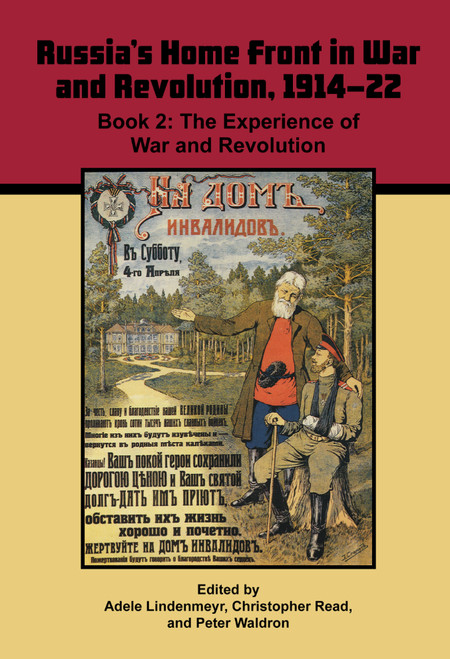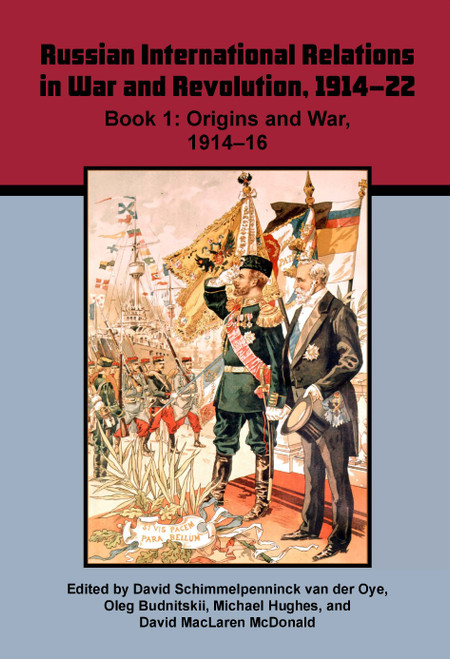Product Overview
Historians devote a great deal of attention to the diplomacy that led Russia into the Great War, but have tended to neglect the course of this diplomacy once the fighting erupted. This volume addresses that lacuna with a broad range of essays examining the foreign relations of the empire, as well as its republican and early Soviet successors, from the July 1914 Crisis to the end of the Civil War in 1922. Written by distinguished and emerging scholars from North America, Europe, Russia, and Japan, the essays make abundant use of Russian archival collections, largely inaccessible until the 1990s, to reassess the conjectures and conclusions previously drawn from other sources. While some chapters focus on traditional “diplomatic” history, others adopt new “international history” by placing Russia’s relations with the world in their social, intellectual, economic, and cultural contexts. Arranged in roughly chronological order, the first volume covers the late imperial period, from 1914 through mid-1916, while the second proceeds through the revolutions of 1917 and the Civil War, up to the end of that conflict in 1922. Together, these books’ comments should foster a renewed appreciation for international relations as a central element of Russia’s Great War and Revolution.
Michael Hughes, From the February Revolution to the Treaty of Brest-Litovsk
https://doi.org/10.52500/PPBE3643
Norman E. Saul, The United States and Russia in the Turmoil of War and Revolution, 1914–18
https://doi.org/10.52500/CNJF3673
Liudmila Sultanovna Gatagova, The Global War in Russian Patriotic Literature, 1914–15
https://doi.org/10.52500/VVGU6668
Thomas Bürgisser, Flight to Neutral Territory: Escaped Russian POWs and Deserters in Switzerland
https://doi.org/10.52500/LLXC9908
Marina Soroka, Family Networks in a Divided Europe: The Case of the Benckendorff Family
https://doi.org/10.52500/TLFP2364
John W. Steinberg, The Treaty of Brest-Litovsk: The Wilsonian Moment before Wilson
https://doi.org/10.52500/MSQG7856
Oleg Budnitskii, The Diplomacy of the “Second Russia,” 1918–22
https://doi.org/10.52500/NDNS9115
Alastair Kocho-Williams, The Persistence of Tsarist Diplomacy after the Russian Revolution
https://doi.org/10.52500/ILYD1707
Anatol Shmelev, Foreign Minister Redux: Sergei Dmitrievich Sazonov and White Diplomacy in Paris, 1918–20
https://doi.org/10.52500/NADM7699
Dinah Jansen, Wilsonian Principles and the Defense of Russian Territory at Versailles, 1919
https://doi.org/10.52500/GADD3063
Charlotte Alston, International Intervention in Russia’s Civil War: Policies, Experiences, and Justifications
https://doi.org/10.52500/RWMB2616
Shūsuke Takahara, Woodrow Wilson’s Intervention in North Russia and Siberia
https://doi.org/10.52500/QUXR5641
Oleksa Drachewych, The Bolsheviks’ Revolutionary International: The Idea and Establishment of the Communist International, 1914–22
https://doi.org/10.52500/ANIJ7435
Daniel C. Waugh, Britain Confronts the Bolsheviks in Central Asia: Great Game Myths and Local Realities
https://doi.org/10.52500/ZCXA5036
Taline Ter-Minassian, From the Transcaspian to the Caucasus: Reginald Teague Jones’s Secret War (1918–21)
https://doi.org/10.52500/LVKE6925
Yulia Yurievna Khmelevskaya, “A la Guerre Comme à la Guerre”: America’s Battle with Hunger in Soviet Russia (1921–23)
https://doi.org/10.52500/HKCM5036
Anthony J. Heywood, Russian and Soviet Foreign Trade, 1914–28: Rethinking the Initial Impact of the Bolshevik Revolution
https://doi.org/10.52500/HXIF7628







